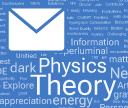
Mathematica 1.0 was launched on June 23, 1988. So (depending a little on how you do the computation) today is its one-third-century anniversary. And it’s wonderful to see how the tower of ideas and technology that we’ve worked so hard on for so long has grown in that third of a century—and how tall it’s become and how rapidly it still goes on growing.
In the past few years, I’ve come to have an ever-greater appreciation for just how unique what we’ve ended up building is, and just how fortunate our original choices of foundations and principles were. And even after a third of a century, what we have still seems like an artifact from the future—indeed ever more so with each passing year as it continues to grow and develop.
In the long view of intellectual history, this past one-third century will be seen as the time when the computational paradigm first took serious root, and when all its implications for “computational X” began to grow. And personally I feel very fortunate to have lived at the right time in history to have been able to be deeply involved with this and for what we have built to have made such a contribution to it. Continue reading









